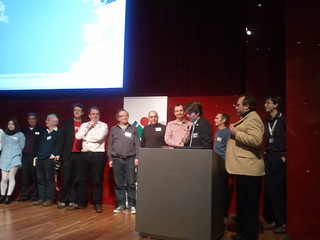By the Masked Maggot and Gregory Kohs
It’s that time of year again. The full-contact sport of Christmas shopping is reaching its peak, meteorologists are waxing on about polar vortices, and the Wikimedia Foundation (WMF) is asking you to donate money (to pay for “servers, power, rent, programs, and staff”). If you use Wikipedia and appreciate its content and functionality, should you donate money to the WMF? The informed donor understands that the WMF spends your money on just about everything except improving Wikipedia’s content, which comes as a surprise to uninformed donors. If you do decide to give a cash donation to support Wikipedia, this year we suggest not donating to the WMF, but instead contributing directly to the Wikipedians who write the actual Wikipedia articles you find most useful. Later, we’ll show you how.
What is the Wikimedia Foundation, and why do they ask for money?

.
The Wikimedia Foundation is a non-profit organization that was formed in 2003 to support the community-written encyclopedia Wikipedia. It had become clear to Jimmy Wales (who was the Internet entrepreneur who underwrote Wikipedia’s limited budget up until then) that trying to monetize Wikipedia with advertising or paid sponsorships would be too disruptive to the community of writers. Indeed, nearly the entire team working on the Spanish-language Wikipedia jumped ship in 2002 in response to even a mild suggestion that Wales’ company might run a few ads on Wikipedia pages, to help pay for staff. For the first several years of its operation, the WMF did genuinely support the Wikipedia community. The WMF remained a small organization with just a few employees to help organize the volunteer writers, photographers, and administrators, maintain and expand the servers, and support the (mostly volunteer) programmers who
…continue reading Make your Wikipedia donations count

